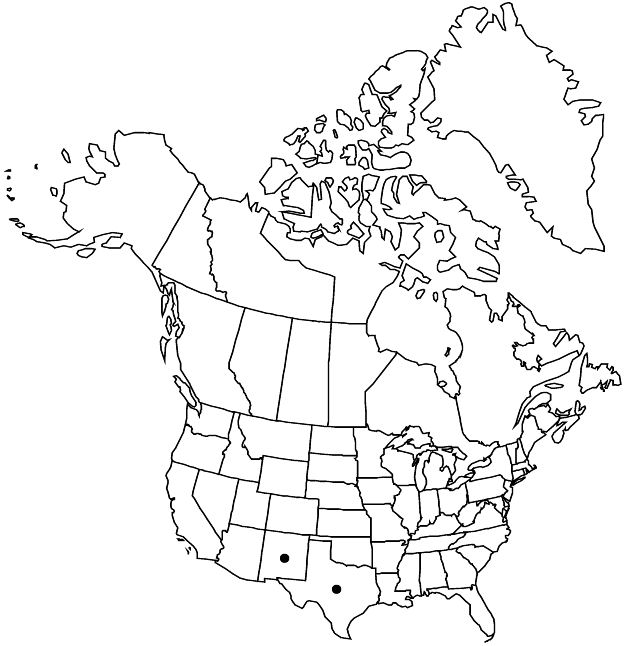Linum vernale
Bull. Torrey Bot. Club 25: 452. 1898.
Herbs, annual, 10–50 cm, glabrous. Stems ascending to erect, branched at base and in inflorescence. Leaves alternate or proximal leaves opposite, divergent to ascending; stipular glands usually present, sometimes absent; blade linear, 8–17 × 0.5–1.3 mm, margins entire, with widely spaced glandular-hairs, apex acute. Inflorescences open panicles. Pedicels 2–12 mm. Flowers: sepals persistent, lanceolate to narrowly lanceolate, 4–7.5 mm, margins narrowly scarious or not, inner sepals abundantly glandular-toothed, outer sparsely toothed, apex narrowly acute; petals yellow-orange to salmon with maroon base, broadly obovate, 10–17 mm; stamens 4–8 mm; anthers 1–1.8 mm; staminodia absent; styles connate to within 0.2 mm of apex, 4–8 mm; stigmas capitate. Capsules ovoid, 3–4 × 2.5–3.2 mm, apex depressed, dehiscing completely into 5, 2-seeded segments (very easily crushed), segments persistent on plant, false septa incomplete, proximal margins terminating in loose fringe. Seeds 2–2.8 × 0.9–1.3 mm. 2n = 30.
Phenology: Flowering Mar–Sep.
Habitat: Limestone soils, bajadas, openings in scrublands and woodlands.
Elevation: 1200–2400 m.
Distribution

N.Mex., Tex., Mexico (Chihuahua), Mexico (Coahuila)
Discussion
Corollas of Linum vernale are broadly bowl-shaped and yellow-orange to salmon with a maroon base. The filaments and styles are pale pink, and the stigmas are dark maroon. The pollen is bright yellow; on herbarium specimens, the anthers appear to be maroon.
Selected References
None.
Lower Taxa
"wider" is not a number.